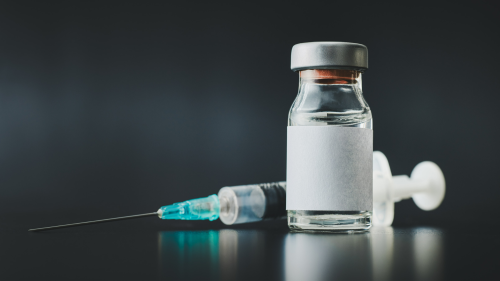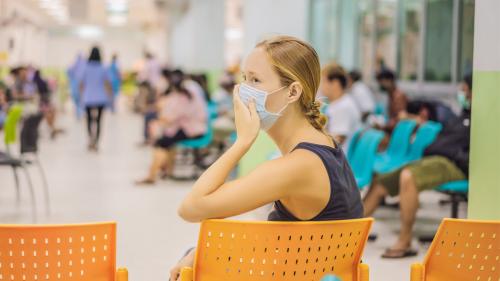
-
Understanding primary immunodeficiency (PI)

Understanding PI
The more you understand about primary immunodeficiency (PI), the better you can live with the disease or support others in your life with PI. Learn more about PI, including the various diagnoses and treatment options.
-
Living with PI
-
Addressing mental health
-
Explaining your diagnosis
- General care
- Get support
- For parents and guardians
-
Managing workplace issues
- Navigating insurance
-
Traveling safely

Living with PI
Living with primary immunodeficiency (PI) can be challenging, but you’re not alone—many people with PI lead full and active lives. With the right support and resources, you can, too.
-
Addressing mental health
-
Get involved

Get involved
Be a hero for those with PI. Change lives by promoting primary immunodeficiency (PI) awareness and taking action in your community through advocacy, donating, volunteering, or fundraising.
-
Advancing research and clinical care
-
Research Grant Program
-
Consulting immunologist
-
Diagnosing PI
-
Getting prior authorization
-
Clinician education
-
Survey research
-
Participating in clinical trials

Advancing research and clinical care
Whether you’re a clinician, researcher, or an individual with primary immunodeficiency (PI), IDF has resources to help you advance the field. Get details on surveys, grants, and clinical trials.
-
Research Grant Program
Positive news concerning the COVID vaccine’s effectiveness for persons with primary immunodeficiency (PI) continues to be shared by top immunologists. During an IDF COVID Update forum held on February 3, Dr. Kathleen Sullivan of Children’s Healthcare of Philadelphia and Dr. Manish Butte of the University of California, Los Angeles reported that most people with PI will launch an immune response to the vaccine.
“With the mRNA vaccine, it’s such a strong vaccine. If you have CVID (common variable immune deficiency) for example, it’s worth getting the vaccine. Eighty percent of CVID patients will make antibodies after an mRNA vaccine. It’s just a better vaccine,” said Sullivan.
“Maybe you didn’t make antibodies to tetanus or pneumococcal, maybe you’re on Ig. My opinion is you should still get the vaccine.”
While most persons with antibody deficiency respond to the vaccines, there are subpopulations who don’t – namely men and boys with XLA (X-linked agammaglobulinemia). Regardless of an absent antibody response, they could benefit from the protection afforded by the T cells that develop in response to the vaccine.
“When we are infected naturally with a virus, we make antibodies, and we develop memory T cells. Even men with XLA who aren’t going to make a bit of antibody to the vaccine are going to make memory T cells. So, the memory T cells won’t prevent the virus from getting in, but they should mitigate the severity of infection,” explained Sullivan.
The vaccine regimen for those who opt for the mRNA vaccines from Moderna (for 18 and up) and Pfizer (for 5 and up) is a two-dose series about one month apart and then a third dose about 28 days after the two-dose series. The third dose counts as part of the primary series for those with PI; those without PI receive only a two-dose primary series.
A booster is another dose of vaccine given after the primary series is completed. The CDC is expected to recommend that the booster be obtained three months after the primary three-dose series for persons with PI (or five months after the two-dose series for those without PI). Currently, Moderna offers the booster for those 18 years old and up, while Pfizer’s booster is for those 12 years and up, although the doctors predicted that boosters for ages 6 and up could be approved by the end of March.
The Johnson & Johnson vaccine requires only one dose, and a booster should be obtained two months after the initial dose. Preferably, the booster should be an mRNA vaccine, either Pfizer or Moderna.
Sullivan added that immunoglobulin (Ig) treatments won’t interfere with PCR or antigen testing for COVID infection, but will affect antibody testing, as there are currently some anti-COVID antibodies in the Ig supply, according to studies performed by plasma companies. Just how protective those antibodies are against the virus remains unclear, she said.
The plasma company studies showed that plasma products contained anti-COVID antibodies in the summer of 2021. Because it takes about 6 to 9 months for the processing and distribution of the products, the plasma with COVID antibodies is just now beginning to be used by those with PI. Butte said that his practice is measuring the protective antibodies in persons with PI who use Ig, and that the results are promising.
“We’re right at the cusp now. We’ve started to see patients show some COVID protective antibodies who would normally not have made it on their own and we can measure the COVID protective antibodies,” said Butte.
So, what if you have no response at all to the vaccines, and you’re not sure your Ig product is providing you with protection?
A new product called Evusheld is a preventative monoclonal treatment designed to protect against the virus. Those who don’t launch an immune response with the vaccine can use Evusheld as pre-exposure prophylaxis.
Evusheld is a pair of manufactured antibodies that bind to the SARS-CoV-2 spike proteins and prevent them from binding to ACE2 molecules. ACE2 molecules are found on the surface of cells throughout the body including in the lungs where the virus likes to attack.
“Anything you can insert between the ACE2 and the spike, you can block the infection. That’s how the monoclonal antibodies work. They all work the same way, even those others that are being developed now,” said Butte, who added that the Lilly and Regeneron monoclonal antibodies became ineffective when they couldn’t bind to mutations on the delta and omicron spike protein variants.
Unlike the usual manufactured antibodies or human immunoglobulins that have a half-life of only about 28 days until they’re recycled back into the body, the monoclonal antibodies of Evusheld last in the blood from six to nine months, said Butte.
“That is incredibly good. One injection might last you all the way through summer and that is what we are hopeful for,” said Butte.
Clinical trials of Evusheld last summer, conducted in 5,000 participants with some type of comorbidity, including a small number who had PI, showed the treatment resulted in an 80 percent reduction in COVID.
“If you can give good protective antibodies to people before they get COVID, it will probably protect about 80 percent of people from needing hospitalization. That’s a huge win for us, especially for patients who can’t make great antibody responses to the vaccine,” said Butte, who urged people to check with their doctor on a regular basis to find out if the treatment, which is in limited supply now, is available.
He added that the monoclonals, like the vaccines, don’t necessarily prevent infection entirely, but rather Evusheld prevents the complications of infection, like needing hospitalization.
Treatment options to aid persons with PI who contract COVID are also expanding.
Sotrovimab is a monoclonal antibody treatment that is administered just after a person is infected with the virus and is designed for those who are most likely to suffer from COVID infection (the elderly and immunocompromised). It acts in much the same way as Evusheld, but it contains only one antibody that blocks the virus from attaching to the ACE2 protein.
Other treatment options include two antivirals – Paxlovid and Molnurpiravir, which target cells that have already been infected with COVID. These treatments try to contain the infection by preventing the infected cells from spreading the virus throughout the body.
“The antivirals can work in parallel, in synergy with the monoclonals. They complement each other,” said Butte. “Notably, all these treatments (Evusheld for prevention, and Sotrovimab, Paxlovid, and Molnupravir for treatment) work for omicron. They are expected to work for the BA.2 strain of omicron but we are not sure yet.”
While the doctors couldn’t predict when the pandemic will subside, they said that with more people getting vaccinated, combined with immunity through infection, viral spread may be slowing.
“There could be more variants down the road, but we are getting close to having, not perfect, but pretty good herd immunity, and so there is at least some hope that after omicron enough people, at least in the U.S., will have been infected that it’s going to be harder for each next strain to get a toehold,” said Sullivan.
Listen to the IDF COVID Update forum.
Related resources

Foundation provides guidance amid changing vaccine recommendations

Foundation to follow medical societies' vaccine schedules in light of ACIP hepatitis B decision

Preparedness key when visiting emergency department with PI
Sign up for updates from IDF
Receive news and helpful resources to your cell phone or inbox. You can change or cancel your subscription at any time.





The Immune Deficiency Foundation improves the diagnosis, treatment, and quality of life for every person affected by primary immunodeficiency.
We foster a community that is connected, engaged, and empowered through advocacy, education, and research.
Combined Charity Campaign | CFC# 66309

